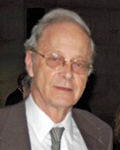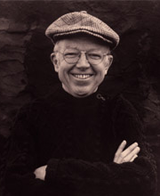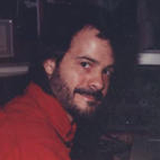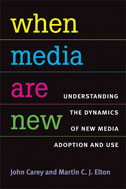Interactive Telecommunications
Graduate degree at NYU (1979-1981)

In 1979 Professor Martin Elton established a graduate program at NYU, focusing on the newly-emerging arena of "interactive telecommunications". Originally housed in three shabby rooms above the venerable Bleeker Street Cinema in Greenwich Village, the ITP (as it was known) was the first post-graduate program to focus on "the emerging Information Economy" and the impending deregulation of the communications industries.
The Value Proposition
Origins

The ITP grew out of the work of the Alternate Media Center, which had been co-founded by esteemed documentary filmmaker George Stoney ("the father of public access television") with the assistence of Red Burns at the start of the 1970s initially focused on the public access side of cable television. After a few years, the AMC moved into the field of two-way cable television.
At the end of 1976, Martin Elton joined the School of the Arts, bringing with him his experience in the evolution of the "new media" towards digital interactivity. He split his time, developing the academic infrastructure which became the Interactive Telecommunications Program while also leading the Alternate Media Center into revenue-generating research on a range of emerging telecommunications services and applications.
The Alternate Media Center played a pivotal role in the start-up of ITP -- primarily by making it possible to support first Martin Elton, then John Carey, and subsequently Martin Nisenholtz on research grants until there was a sufficient budget to create the ITP itself.
Guides
Professor Martin Elton and Professor John Carey
published this
insightful analysis of the early daze
of The New Media in 2010.
These were some of the folks who made it all worthwhile:
Martin Elton (who had led user research on new media commissioned by the British government) founded the Masters program and established academic credibility by attracting topnotch researchers, academics, practitioners, and businesspeople who could provide a fully-featured view of the fast-changing new media environment.
John Carey brought insights and experience on media management
Gary Schober provided much-needed technical expertise
Ed Goldstein of AT&T addressed telecommunications policy
Ken Phillips of CitiCorp provided a grounding in operations
Cal Pava of the Wharton School provided insight on organizational systems
Brian Winston examined the confluence of media and ethics
Brian Champness offered sound insights into human dynamics

We Wire the World
We wire the world, we wire the nation,
We’re the ones who made your life worth living.
The time has finally come, we’ve got to take a stand,
If we’re to have a brighter day, you’ll have to pay.
Send us your checks so we’ll know that someone cares
And together we can crush the OCCs
Our ads have shown you, the choice is up to you
It’s true the more you have to pay, the less we do
Pioneers
Most of us early ITP students had something of a pioneering profile. It was a dynamic mix: A delightfully disproportionate number of us came from the Bay Area and "the new media".
A significant number (about half) of the early students were already employed in corporate or service or the telecommunications industry and were looking to enhance their careers by getting in on "the cutting edge" of this newfangled technology.
Nobody knew what it was going to become, so we got to explore it all: form, function, gadgetry, behavior, social and organizational change, global implications ....
In a lighter moment, "Rapmaster Markie" Mark Siegeltuch leads a flock of ITP wannabes his stirring 1983 musical homage to the struggling online industry: "We Wire the World" (words: Mark Siegeltuch - Sung to the tune of “We are the World”)
From left: New media wannabes David "Stang" Fenicell, John Vaughan, Terry Murphy, Anne McKay.
Note: In foreground, audience member holds her head in stunned disbelief.
The Value Proposition
When asked what I wanted/expected from a graduate program in a field-which-didn’t-exist-just-yet, I responded:
- Credibility in the arena and the field (the title, label, and degree itself)
- Fluency the ability to grasp & ‘talk the talk’ of the new technology
- Connections in the business (they were rare at the time)
I got what I paid for.
Legacy
You can view a collection of my ITP course papers (1979-1981), demonstrating an often-naive view of The Interactive Future from the perspective of that era:
I find it remarkable - but somehow reassuring – that many of these ideas still resonate today.
Never let your schooling interfere with your education.

I came into the program experienced in video, with a nominal career in the then-marginal cable TV industry, which was still primarily local and niche programming at that point (MTV hadn't even been invented yet!).
I also had some talent as an animator - and a previous graduate degree in Educational Media gave me some credibility as a "serious" information packager. I was fortunate to be at the right place at the right time
As one of the first 3 graduates of NYU's Interactive Telecommunications Program in the spring of 1981, I was uniquely positioned to participate in what was soon to be known as "the Web".
